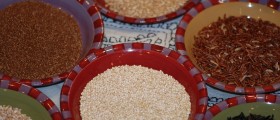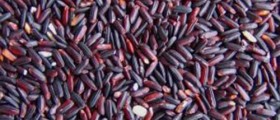
The interest in whole grains and products based on whole grains has been increasing over the last decade. This is mainly because it was found that whole grains are very healthy and beneficial for those who are eager to lose weight.
The problem with whole grains is that only a few products advertised as such are actually whole grain. It is therefore recommended to carefully read the labels and statements on packages before purchasing them, or to buy them in trusted health food stores.
Knowing the real whole grain
There are certain terms and names that sound like they indicate whole grains but in fact they are not. Multigrain, pumpernickel, 100% wheat, cracked wheat, stone ground and bran are all great and delicious, and they have their own benefits, but they are not whole grain.
A whole grain contains all the edible parts of the grain. This includes the bran, the germ and the endosperm. It can be used intact or recombined, but in any case, if those parts are still present, it offers much more nutrients than the processed grain.
The products that qualify as whole grains include popcorn, whole oats, whole corn, whole rye, whole-grain barley, wild rice, buckwheat, bulgur, quinoa, millet, sorghum, triticale and brown rice.
It often happens that breads advertised as 100% wheat are not whole grain at all. They may be brown because of the molasses added to it, but the wheat used for it is probably processed and the bran is stripped from the kernel.
Benefits of whole grain
Whole grain and the products obtained from it or with it are considered to be much more nutritious than processed wheat and other cereals. They are a good source of carbohydrates but the carbs found in it are much better than the ones coming from processed foods.
Whole grain also offers plenty of protein and fiber, which is necessary for proper functioning of different organs and processes in the body, and the fiber is necessary for good gastrointestinal health. In addition, whole grains are packed with vitamins and minerals, especially vitamins of the B complex, vitamin E, zinc, magnesium and copper. They also contain antioxidants, which is very important for the prevention of aging and diseases.
Research has shown that whole grains provide protection against type 2 diabetes, obesity, heard disease and some types of cancer. In addition, whole grains protect the colon from various problems and they promote the growth of “good” bacteria in the colon.

















Your thoughts on this
Loading...